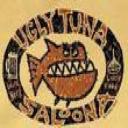Yahoo Answers is shutting down on May 4th, 2021 (Eastern Time) and beginning April 20th, 2021 (Eastern Time) the Yahoo Answers website will be in read-only mode. There will be no changes to other Yahoo properties or services, or your Yahoo account. You can find more information about the Yahoo Answers shutdown and how to download your data on this help page.
Trending News
Bacon - American vs. British?
I have read that bacon in the USA is mostly streaky bacon (ie. pork belly). That surprised me at first. Is this true? Back bacon (ie. pork loin, from the pig's back) is the normal bacon in the UK and totally delicous. Streaky bacon is also good but much more fatty and considered 'cheaper' than proper back bacon. Do Americans know about back bacon and just choose not to buy it? Are there any trends towards back bacon in the US ? ;)
Joyce B - I checked the link you sent but the picture of the Canadian bacon is nothing like British back bacon (is that really what you American's call Canadian bacon??). Our back bacon is the Irish bacon further down.
Unknown chef - thanks for explaining Canadian bacon. Clearly, this is a very different product to Britsh back bacon, in that it is formed, rolled and not the natural bacon shape with the fat left on etc. It seems much more industrial. Annoying that so many internet sources suggest it is the same thing! British back bacon is the natural form, but it can be smoked OR unsmoked - both are widely available.
Here is a link to typical British back bacon (though this one is organic).
7 Answers
- aphroditeLv 69 years agoFavorite Answer
Yes, when i went to the US (2 occasions) their bacon is streaky and cooked till it is really crisp and hard.
I did not see any 'back' bacon as we call it, with the rounded bit of bacon at the end.
- Anonymous5 years ago
The Colonial independence movement would have taken longer, but it still would have come. The British saw the colonies as a bunch of lowlifes who were only good for laboring in the wilderness to fill the British coffers. That wouldn't have changed. Also, laws passed thousands of miles away "on the Islands" didn't always make any sense to people who had to live under them in the colonies, so problems were already brewing even without the taxation. Read the Declaration of Independence and you will see a list of problems that the colonist had with Britain. I keep referring to "Britain" here but actually the entire problem was "English". The Scotts and Welch had very little input, it was the English running the show. The next thing here is that you mentioned the Confederacy. Like all public school children, you were taught that the American Civil War was about slavery..... wrong! The Confederacy was formed for the same reason that the American Colonies broke away from Britain! Also, if your history teacher was teaching you the truth you would see that Britain actually gave AID to the Confederacy. There was even an international court case about it where Britain was fined for helping the Confederacy.
- The Unknown ChefLv 79 years ago
British back bacon is made from the pork loin, it is cured but not smoked, Canadian bacon is also from the centre loin, but it is cured formed and smoked, when done has a rolled/round shape, I like English bacon we sell it here in Canada in packages, we have all kinds from the streaky/rasher type, I buy double or triple smoked European types from Hungarian and Polish meat shops, the English type and we have another called "Peameal" a cured loin like CB but not smoked nor rolled but rolled in cornmeal grits, it is a ham like item, always more expensive in the shops and in restaurant to if ordered.
When I visit my UK chef mates in London and Liverpool, we always go out to a cafe or transport cafe for a full English breaky/fry up before I come home, I do not eat that way in Canada.
- Anonymous5 years ago
For the best answers, search on this site https://shorturl.im/ayhNF
Throughout the 100 years prior to the revolt, the colonists had made it clear that more land was needed (see reasons for Bacon's Rebellion). What stood in their way was the English Parliament and the French who owned the Ohio River Valley. The colonists had repeatedly petitioned to have the French removed from the North American continent. Parliament refused, often times stating that they needed to learn to get along with their neighbors (just as they do in Europe). In truth, the last thing the English (in England) wanted, was yet another costly war with the French. To that end, in the colonies, it became a common practice that colonists would take over French forts and trading posts. Back in England, Parliament would give back to the French what had been taken with an apology. A young Lt.Col. George Washington was assigned by the governor of Virginia to lead a party of men to the Mississippi River and establish a settlement there. En route, they happened on a French fort, attacked and captured it. Parliament tried to return it to the French with the standard apology but the French refused to accept it and instead went to war (French and Indian / Seven Years War). The colonists saw this as their opportunity to kick the French out and so they fought hard and won the war in N America. The English Army also fought in France and won there as well, but it was an extremely expensive war. The King of England handed down the Proclamation of 1763, which forbid any colonist from moving into the Ohio River Valley. Anyone who already lived there was required to give up their land and move back to the already over crowded eastern seaboard. The French were given the entire Ohio river Valley, and the Native Indians were sandwiched in between as a sort of buffer. The King then began imposing tax increases and new taxes to help offset the cost of the war. By this time, the economy in the colonies had grown over 1000% (over the previous 100 years) and the birthrate was 4 times that of England. The colonists could afford the tax increases, but they asked for a seat in Parliament. They were told no, that they had representation enough with the House of Burgess. The HoB represented no one but the King. Having been denied a seat in Parliament they asked for a direct audience with the King and were told no on this as well. So, they had taxation without representation. Prior to this, most every colonists had felt themselves to be loyal subjects of the crown. Unfortunately, the view from England was far different. Colonists were looked down upon by those in England. Even George Washington who had amassed some 220,000 acres and a bank account to match, was poorly received when he visited England. Understand too that what Washington had accomplished (in land ownership and finance) could NOT be achieved in England by anyone other than aristocracy. Washington, was a "commoner." Had the colonists been allowed to move into the ORV and/or been allowed representation, they would most likely have willingly paid the new taxes. But because they were not allowed any of these, they felt they had little choice. They went to war. Good luck on your assignment. You may use whatever you like from this, but understand that if you copy it word for word, your teacher will know it is not your work.
- How do you think about the answers? You can sign in to vote the answer.
- Joyce BLv 79 years ago
I think we call British back bacon Canadian bacon. Both are good, but different.
- 9 years ago
I'm not from U.S.A or UK but I think bacon is bacon. Anyways, they're both delicious but from the things you you just said, I think UK's bacon is better.









